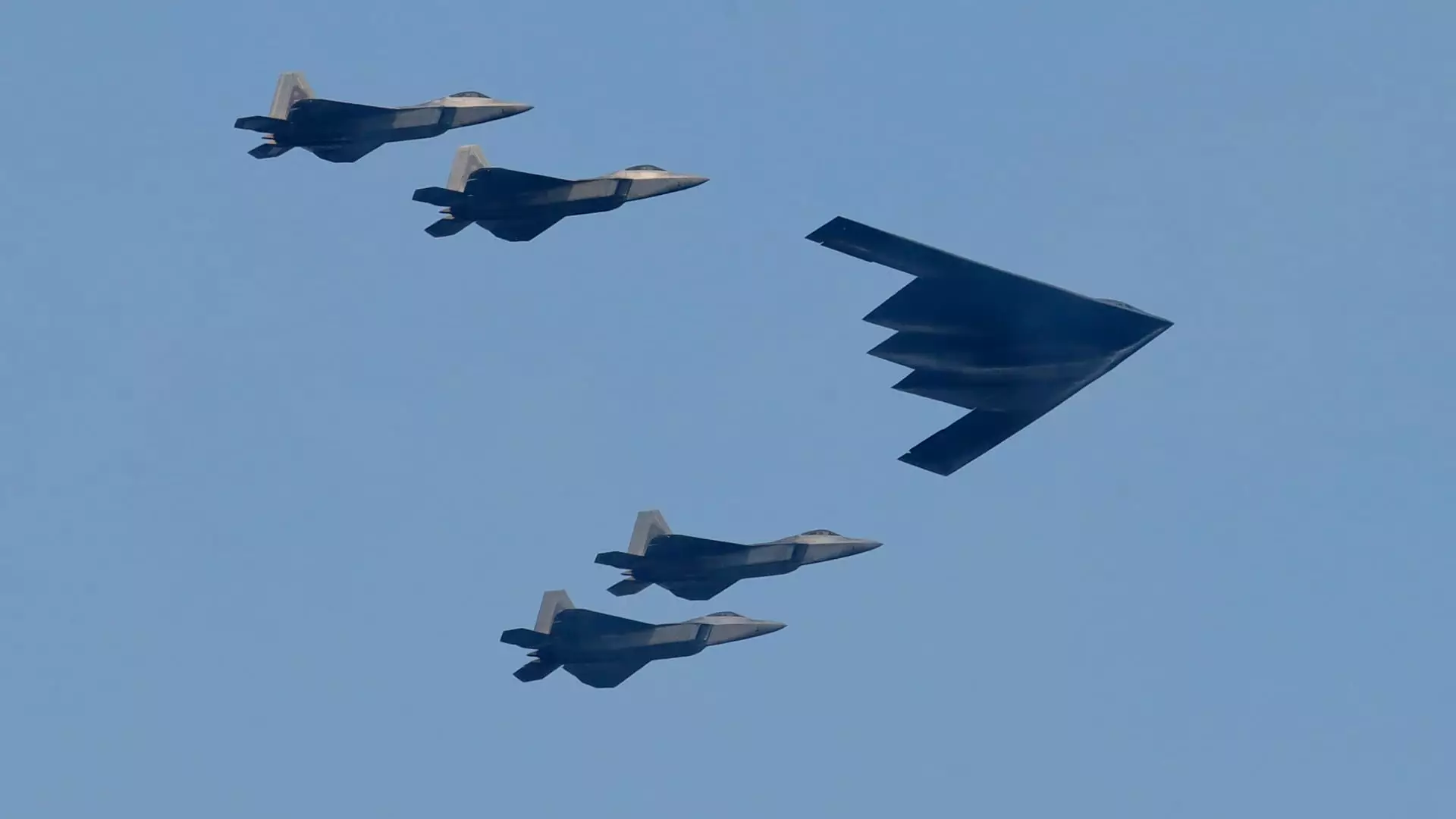In a move that could forever alter the geopolitical landscape, President Donald Trump announced the U.S. had executed a “very successful attack” on Iranian nuclear sites, particularly targeting the Fordo facility. This provocative military action, described by Trump as an “HISTORIC MOMENT,” raises the unsettling prospect of a new wave of violence in an already unstable region. While supporters—especially among the Israeli leadership—herald this as a bold assertion of strength, the ramifications stretch far beyond mere nostalgia for decisive military action.
The situation in Iran was already fraught with tension, and yet, here we are, thrust into what could be termed an unprecedented level of recklessness. The celebration of military triumphs may seem appealing to a specific political base, but it also dances dangerously close to the precipice of war. Trump’s assertion that “Iran must now agree to end this war” suggests a worrying belief in military intimidation as a pathway to peace. It is a jarring paradox that a leader claiming to seek stability resorts to military aggression instead of diplomacy.
Global Repercussions: A Call for Caution
International leaders have responded with a range of emotions, from outright condemnation to support tinged with hesitation. United Nations Secretary-General Antonio Guterres expressed profound concern about the potential escalation ensuing from this assault, labeling it a “dangerous escalation.” His statement was a wake-up call, stating that “there is no military solution” and emphasizing that diplomacy must lead the way. In a world where we are hyper-aware of global interconnectivity, the risk of collateral damage and regional fallout cannot be overstated.
Guterres’s warning is not merely political rhetoric; it resonates deeply in a world reeling from countless conflicts driven by similar miscalculations. The catastrophic consequences he cautioned against are not abstract theories but potential real-life tragedies for civilians caught in the crossfire. One can’t help but wonder: is this really the legacy that America wishes to craft on the global stage?
Divided Opinions: Allies and Adversaries
The unequivocal endorsement by Israeli Prime Minister Benjamin Netanyahu stands in stark contrast to the international outcry. Netanyahu’s claim that “first comes strength, then comes peace” reveals a mindset that values might over dialogue. When Trump and Netanyahu vow to usher in a new era of peace through muscular posturing, it forebodes an acceptance of perpetual conflict; peace achieved through force is not sustainable or desirable. The historical failures of this perspective should serve as a cautionary tale, reminding us that dialogue and negotiation have been the true hallmarks of enduring peace.
Meanwhile, leaders from nations like Venezuela and Cuba have denounced the attacks vehemently, viewing them as a blatant violation of international law. These reactions underscore a broader consensus among those on the receiving end of America’s military strategy. The perspective that equates U.S. intervention with aggression is prevalent, as it often exacerbates tensions rather than resolving them. As more nations express their displeasure, it’s evident that Trump’s gambit not only risks America’s international standing but also invites complications that can spiral beyond control.
The Urgency for Diplomatic Solutions
In a refreshing departure from the ruling narratives, countries such as Mexico have called for urgent diplomatic efforts to mitigate the burgeoning crisis. Their stance aligns with a center-left liberal ethos that prioritizes peaceful coexistence over martial displays of power. It’s a reminder that even amidst the bluster of military might, the voices advocating for diplomacy and dialogue represent a ray of hope.
As South Korea prepares for emergency discussions surrounding the attack, the growing chorus of nations urging for peace speaks to a center-left liberal perspective that recognizes the complexities involved in international relations. Historic grievances must not be allowed to define future relations between countries. Only through compromise, measurable progress, and concerted efforts can we hope to de-escalate tensions and build a bridge towards a more harmonious global community.
The question remains: will the United States recognize its role not just as a military superpower but as a potential architect of a more stable world? Only time will tell whether this reckless strike marks the beginning of a tragic chapter in global relations or signals a shift towards a more sustainable approach to international diplomacy.

Leave a Reply